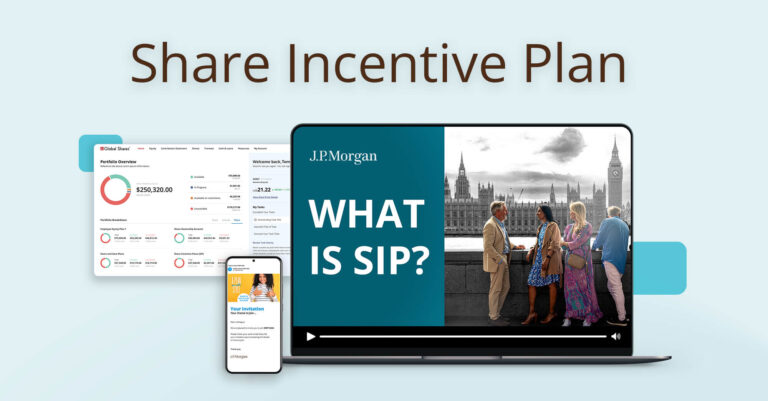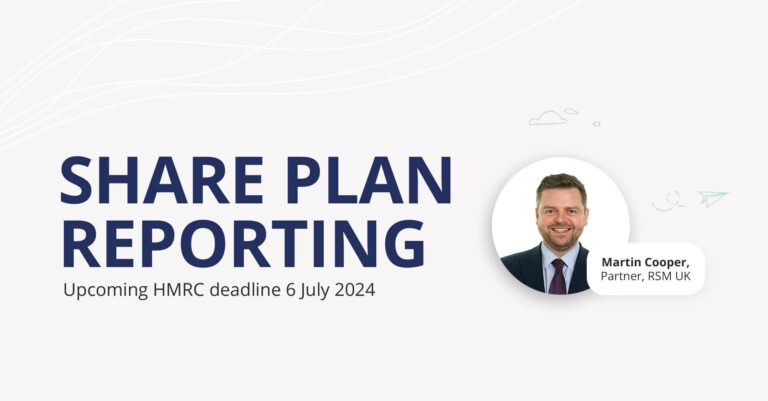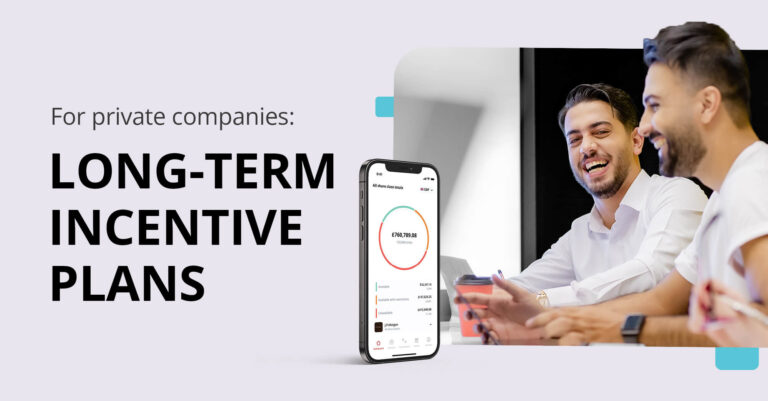Save As You Earn (often known as Save As You Earn/SAYE), introduced in 1980, is a tax-advantaged savings-related share scheme. It is HM Revenue and Customs (HMRC) approved and is one of the two all-employee share schemes that are tax-advantaged in the UK. To learn about other HMRC-approved share schemes, check out here.
According to Office for National Statistics UK, Save As You Earn is the most popular among all the employee share incentive schemes available to employers.
How do Sharesave schemes work?
When your company rolls out a Sharesave scheme, taking part in it is voluntary but your employer must offer the scheme to all employees with 5 years’ service or more.
To participate in it, you need to enter into a Save As You Earn/SAYE contract (also called a savings contract). When the savings contract begins, you’re granted the right to buy shares at a future date at a discounted purchase price (i.e. exercise price). The funds used to buy the shares will come from the accumulated savings, made over the savings period via payroll deduction. During the savings period, the money will sit in a savings account, managed by an approved savings carrier.
To Begin your savings contract, you’ll
- Choose how much you want to invest: You’ll be able to save between £5 and £500 per month. Savings are post-tax and are made by payroll deduction.
- Choose how long you want to invest: You can choose either 3 or 5 years. Your employer may decide to offer one or both of these terms
- Confirmed the discount purchase price when the scheme ends: This cannot be less than 80% of the market value of the shares at the date of the grant. (i.e. maximum discount is 20%)
Employee eligibility for a Sharesave scheme
You’ll be eligible to participate in the scheme if you’re a UK employee / full-time director of the company or a participating company within the group.
The board may, however, determine that a qualifying period of service (of up to 5 years) is required before an employee or full-time director can participate in the scheme.
What can you do with your savings when the contract ends?
When your 3-or-5-year savings contract ends, you’ll generally have 2 options:
- Use your savings to buy some or all of the shares: This can be further broken down into three approaches:
✔ Buy & Sell: This is more likely to be your choice if your company’s share price is higher than the exercise price. You might have to pay capital gains tax (CGT) if you sell the shares.
✔ Buy & Transfer: It won’t trigger CGT if you transfer the shares to your pension immediately OR an Individual Savings Account (ISA) within 90 days of the date of your scheme ending. Even if you sell your shares from the ISA, any profit won’t be subject to CGT.
✔ Buy & Keep: You may be tempted to do so if you think your company’s share price is likely to climb. But, the price could drop as well. - Decide to not purchase (i.e. exercise) the shares and have your savings returned as a lump sum: This may happen if the market value of the shares has fallen below the exercise price.
Are Sharesave schemes worth it for employees?

Save As You Earn is a risk-free method of building your financial portfolio. The benefits come from three main areas:
Financial benefits:
The scheme is one of the most tax-efficient employee share schemes in the UK. For example, there’s no tax charged at the grant and at the exercise* of the share option. You also don’t have to pay tax on the interest and any bonus earned. Check out our article on Sharesave Scheme Tax.
Recently, HMRC has updated its mechanism for calculating the bonus rates for SAYE participants. The mechanism will apply from 18 August 2023 and is expected to result in a bonus being provided to new participants for the first time since 2014.
*If the date of exercise is at least three years after the date of grant.
Flexibility:
In addition to being flexible to save – as little as £5 or as much as £500 per month, you can potentially withdraw contributions at any time before the end of the savings contract and will be entitled to the current value of your total contributions to date repaid in full.
Money-back protection:
When the scheme ends, you can simply ask for all your savings back if the share price drops below the exercise price.
Additionally, the Financial Services Compensation Scheme (FSCS) in the UK can cover up to £85,000 of savings. Those who participate in it are protected before purchasing the shares and entitled to an £85,000 guarantee in the event of the bank going bust.
BUT, once you have purchased the shares, you lose this protection.
Are Sharesave schemes worth it for employers?
Corporation Tax Deduction:
A Sharesave scheme benefits a company financially when calculating their tax liabilities.
The costs incurred in setting up an approved scheme are treated as a deduction in working out your company’s profits for corporation tax purposes.
Also, when options are exercised, an employer obtains a statutory corporation tax deduction for the amount of the employee’s gain.
Flexibility:
Companies can decide on the level of discount given – from zero to 20% of the market value of the shares. They can also set a minimum service requirement for participants at a maximum of five years. Therefore, employers can choose to exclude relatively new workers.
Employee Retention and Loyalty:
The real advantages for a business though come from the sense of ownership, loyalty and accountability a Sharesave scheme can give to an employee. It is a great way to link individual employee goals to overall company aims.
By committing to the scheme, an employee is much more likely to commit themselves to the company itself, both in the length of their service and the quality of that service.
What happens if you leave the company during the scheme period?
There are a number of ways it could pan out – depending on the reason for the employee leaving the company, but the agreement should be laid out from the very beginning in the scheme rules. Generally speaking:
✔ Good leavers (leave because of injury, disability, redundancy or retirement): You normally have six months from your leaving date to purchase as many shares as the proceeds of your savings scheme allow, under the contract.
✔ Bad leavers (get a job at another company): That depends on the scheme. You may not be able to exercise the option to purchase the shares, however all the accumulated savings and any interest due will be repaid to you.
So, how to launch a Sharesave scheme?
As an employer, Sharesave schemes are a great way to attract great talent, retain and motivate that talent, and improve employee performance across all levels of your company. To roll out a Sharesave scheme, an employer needs to:
- Check Eligibility:
– Employer: Needs to be a public company listed on a stock exchange, such as the Financial Times Stock Exchange (FTSE), or needs to be owned by a public company that’s listed on a stock exchange.
– Shares: Must be ordinary shares, fully paid-up and non-redeemable - Register via HMRC’s Online Service Portal:
After you’ve registered the plan with HMRC, you’ll receive a scheme reference number, which you can use to log into HMRC’s online services and ‘View schemes and arrangements’. Instructions around the annual filing requirements for your scheme can be found there and must be adhered to.
JPMorgan Chase & Co., its affiliates, and employees do not provide tax, legal or accounting advice. This material has been prepared for informational purposes only, and is not intended to provide, and should not be relied on for tax, legal and accounting advice. You should consult your own tax, legal and accounting advisors before engaging in any financial transaction.











